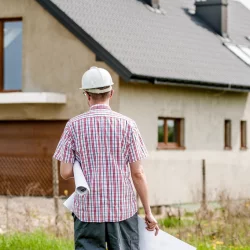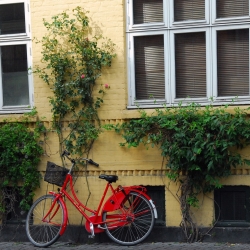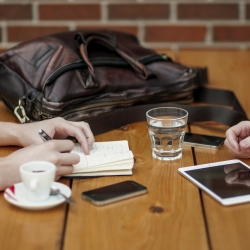How to Become More Self-Sufficient
No one can dispute that we live in uncertain times! We never know what will happen from one minute to the next, therefore it pays to be prepared for any disaster. We can sit and worry about it, or we can take steps right now to become more self-sufficient.
What would happen if there was a tornado, hurricane or earthquake near you? With no access to utilities? Do you have enough water, food and supplies on hand to see your family through a difficult time? What if our power was interrupted and we couldn’t take care of daily necessities? Do you have a back-up power plan? Do you have enough water for drinking, cooking or bathing? Do you have a stocked food pantry? These are tough questions that we have to ask ourselves.
We see it time and again on the news. People are left waiting for help and supplies to come that may not get there for days or longer. People are even talking about how to survive without the mark of the beast – who knows? Is it time?
Do you live where you could have a few chickens? The eggs would surely be appreciated in an emergency.
WATER IS NECESSARY FOR LIFE
The importance of water cannot be understated. It’s required for life! But, in the case of an emergency, would the water be clean and safe to use? If you had to get water from a pond or creek, do you have a way to purify it before giving it to your children? I encourage you to think about this and take necessary steps to take care of business. It’s easy to stock up on bottled water.
Drinking contaminated water causes many water-borne diseases. Don’t take a chance on anyone contracting dysentery, typhoid fever, cholera or polio. It’s just not worth it.
FOOD IS NECESSARY FOR LIFE
Although you can certainly live longer without food than water, I’ll bet your children (and even yourself) have a habit of wanting to eat a couple of times every day. Cans of soup is inexpensive, and would be fairly easy to prepare even without electricity. Stock up on a bag of powdered milk that could be used with cereal. How about some instant oatmeal? Think about the things your family would eat and stock them in your cabinet or pantry. Do you have a vegetable garden? Have you put away some of the harvest?
DON’T FORGET MEDICATIONS
Does anyone in your family depend on prescription medication? Ask your doctor to prescribe an extra bottle for emergencies. Over-the-counter meds can easily be put into your emergency bag. And, because people get hurt during emergencies, don’t forget to stock up on some band-aids, bandages, quick clot and antiseptic cleansers. You might end up being the nurse to your whole family or even the neighborhood.
USEFUL SUPPLIES
A few supplies that would come in handy during an emergency would be:
- Flashlights and Batteries
- Any Camping Equipment
- Paracord
- Blankets
- Sleeping Bags
- Personal Hygiene Items – especially female needs
- Toilet Paper
Speaking of toilet paper, if your city sewer was unavailable, what would you use for a bathroom? How would you dispose of waste? This can be a major cause of disease, and it’s worth being prepared for. If you have a septic tank, then it would be much easier to handle this situation. But, when a city sewer isn’t operable, the mess can back up into your home. This is even more complex if you live in an apartment building where the plumbing is inter-connected. You might want to have something put away that you could use to plug up any open plumbing openings?
PERSONAL PROTECTION
Personal protection is another matter that bears consideration. Emergencies seem to draw out the criminals and looters. Think about ways that you could protect your home and family in an emergency situation.
Take care and be safe!
More to Read:
Previous Posts:








